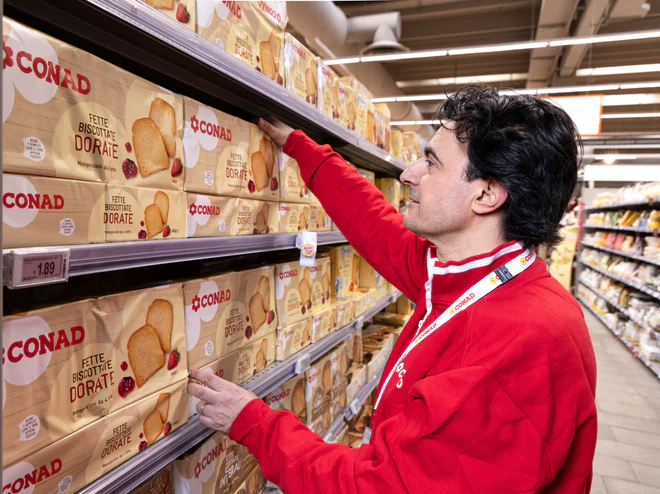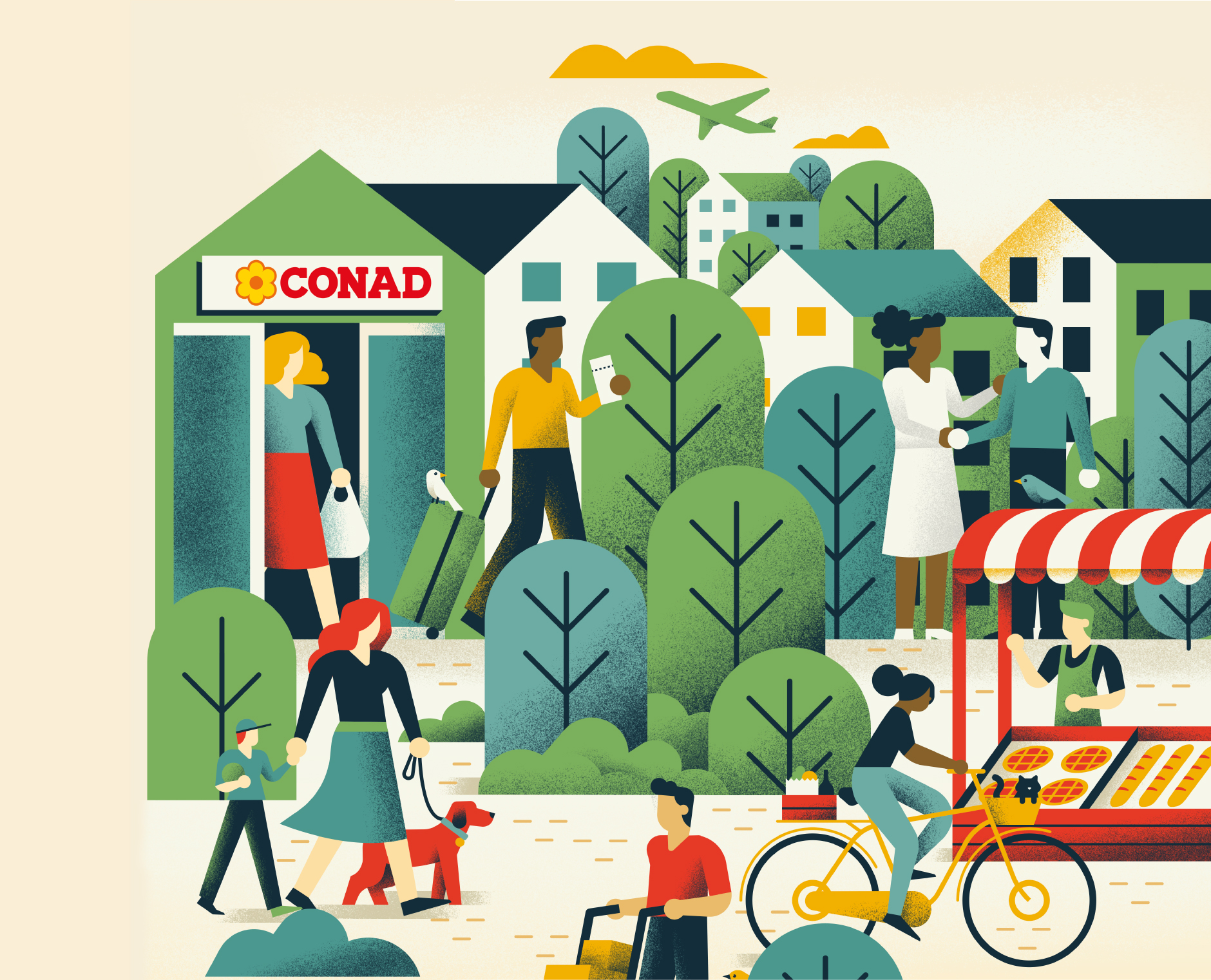

Chi Siamo
Conad – acronimo di Consorzio Nazionale Dettaglianti – è la più ampia organizzazione di imprenditori indipendenti del commercio al dettaglio presente in Italia.
Approfondisci
Le Cooperative
Gli imprenditori associati costituiscono le Cooperative, le quali operano nelle diverse aree del Paese, coordinano l’attività commerciale a livello territoriale e offrono agli associati servizi amministrativi, logistici e finanziari.
ApprofondisciSosteniamo il futuro
Ci impegniamo costantemente a contribuire alla crescita del nostro Paese, avvicinandoci con forte sensibilità a temi ambientali e promuovendo la produzione nazionale.
Approfondisci
News e approfondimenti
Iniziative, posizioni, dichiarazioni e approfondimenti che riguardano il sistema cooperativo Conad.
Approfondisci
In 2022 Italian large retail recorded sales growth of +6.7% on the previous year, according to the most recent edition of the Observatory on Italian and international food-focussed large retail by Mediobanca’s Research Department.
On an annual basis, according to observations by NielsenIQ, the decline in sales volumes was imperceptible compared to 2021: just -0.3%.
However, the monthly figures show that volumes entered negative territory in October. In fact, after the summer, the increase in energy costs and inflation to around 10% entailed a decrease in volumes that offset the rise in prices.
Channels
Supermarkets remain the leading distribution channel, with 40% share and a positive performance in terms of turnover of 6.7% compared to 2021, permitting an increase in share of 2% compared to the pre-Covid period.
Discount stores, with a share by value of 21%, were up by 3% on 2019 in terms of share, with turnover increasing by nearly 41% in three years and by 11.7% over the last year alone. However, according to the Nielsen inflation observatory discount stores are also the channel where inflation is the highest (+20% at the beginning of October).
Small traditional retail lost two points of share in 2022 compared to the pre-pandemic period, with turnover also declining on the previous two years: -5.4% in 2022 after -5.7% in 2021. Free service and mini markets (sales area of
less than 400 m2) also lost share compared to the pre-Covid period (-1%), despite a slight increase in turnover (+3.2%).
Despite their solid performance in terms of turnover (+7.7% on 2021), hypermarkets lost 1% of share in values by value compared to 2019, falling from 24% to 23%.


Digital channels
There was also a decline in the number of families who use the digital channel for food purchases (the number of families who shopped online declined by 8.8%, whereas the value of shopping through this channel decreased by 3.3%). After the boom in 2020 and 2021, the physical channel was once again the preferred choice of nearly one million families who in 2021 had used the digital channel.
However, packaged products continued to perform well, recording an increase in sales of 4.4% by value. Yet digital purchases remained 125% higher than in the pre-Covid level, accounting for approximately 3% of the value of omnichannel retail purchases. The weight of promotional sales (total for Italy) fell to 23.7% from 25.2% twelve months earlier. Faced with a reduction in margins, stores reduced their promotions.
Own-label products underwent further evolution. From a single brand bearing the name of the store, they are increasingly becoming a range of products recognisable for all intents and purposes as an industry brand. The consumption of “distributor’s brand” products accounted for 30% of the food total (including discounts) in September 2022, with growth remaining stable in this category, despite already reaching 40% in other countries.